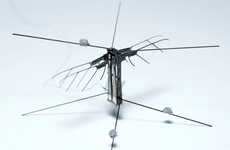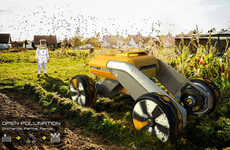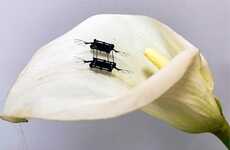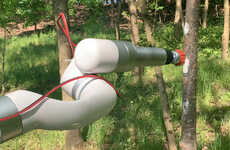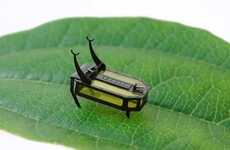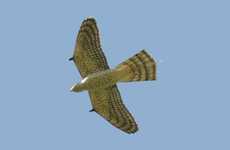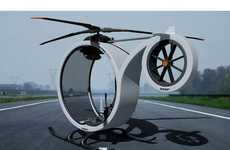
Harvard Researchers Get $10 Million to Create Robobees
Marissa Liu — October 21, 2009 — Tech
References: robobees.seas.harvard.edu & switched
The National Science Foundation has awarded Harvard researchers $10 million to create a coordinated colony of robotic bees. The project is named Robobees. On the plus side, the robotic bees won’t be able to sting anyone, but on the downside they won’t be making any honey.
The Harvard team aims to use the robotic bees to research and develop technology for miniature robotics, aero-mechanical design, compact high-energy sources, sensors and electronic “nervous systems” that can react to their environments, communication methods and individual AI and collective hive mentality -- pretty important stuff that will have wide-spread applications if successful.
The Harvard team aims to use the robotic bees to research and develop technology for miniature robotics, aero-mechanical design, compact high-energy sources, sensors and electronic “nervous systems” that can react to their environments, communication methods and individual AI and collective hive mentality -- pretty important stuff that will have wide-spread applications if successful.
Trend Themes
1. Miniature-robotics-research - The Robobees project will provide innovation opportunities in the field of miniature robotics research, specifically in developing compact high-energy sources, communication methods and artificial intelligence.
2. Aero-mechanical-technology - The development of aero-mechanical design technology through the Robobees project can disrupt industries such as drone technology, aerospace, and aviation.
3. Advanced-sensors-innovation - The Robobees project research on electronic nervous systems that react to their environments can lead to disruptive innovations in advanced sensor technology for various industries such as healthcare, agriculture, and security systems.
Industry Implications
1. Drone-technology - The robotic bee technology developed in the Robobees project can disrupt the drone technology industry by providing more efficient and cost-effective options for various purposes such as surveillance, logistics, and transport.
2. Aerospace-industry - The aero-mechanical design technology developed through the Robobees project can potentially disrupt the aerospace industry by providing new designs for aircraft and spacecraft.
3. Agriculture-industry - Advanced sensor technology innovations resulting from the Robobees project can greatly benefit the agriculture industry by providing real-time information and monitoring of crops, soil, and livestock.
2.4
Score
Popularity
Activity
Freshness

